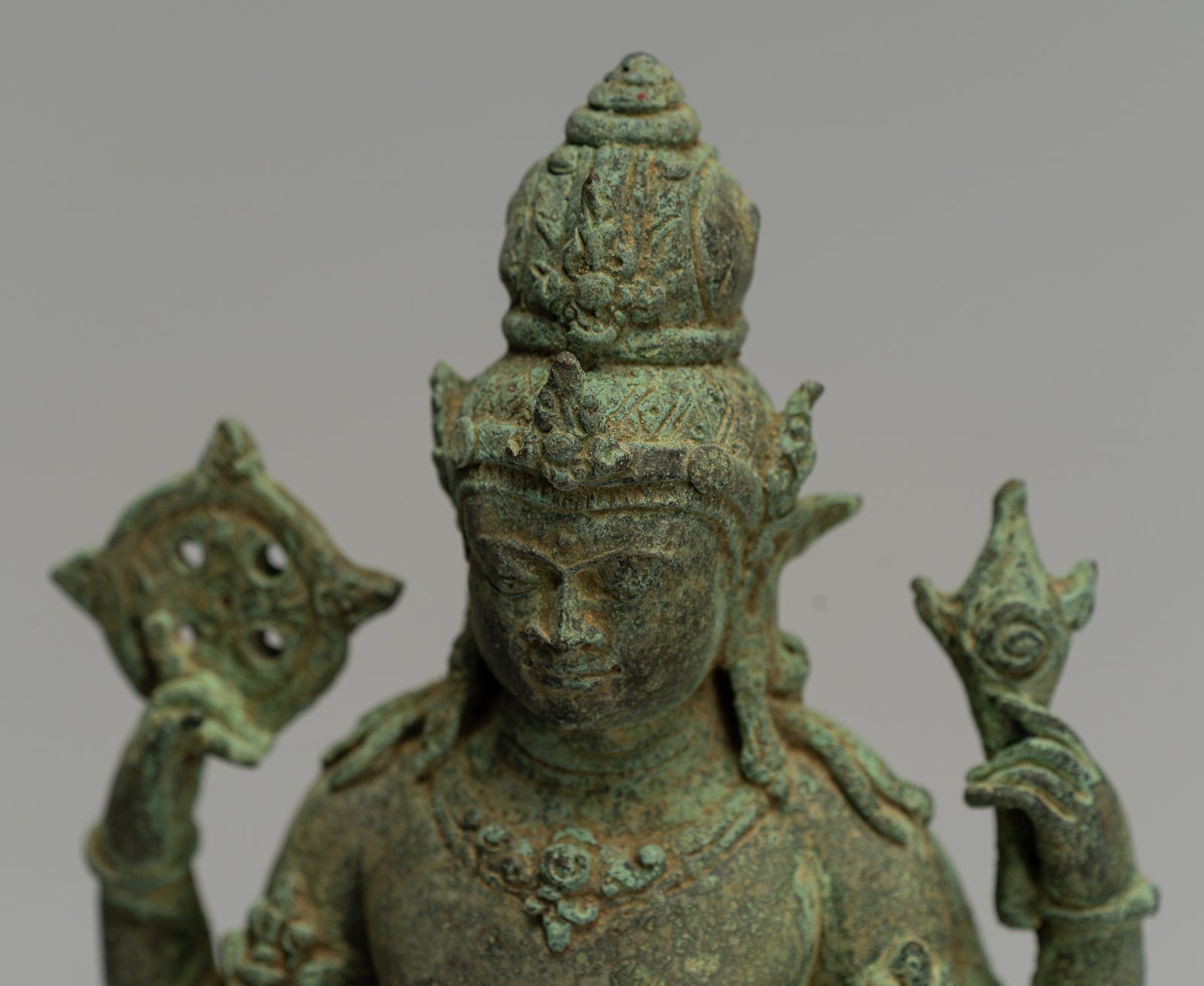
Who was Vishnu?
Vishnu is one of the principal deities in Hinduism, one of the three main deities in Hinduism alongside Brahma and Shiva. He is often considered the preserver of the universe. He is known for his numerous forms and avatars, as well as for his role in maintaining the balance of the cosmos. In this Blog, we will explore the history, mythology, and symbolism of Vishnu.
Historically, Vishnu has been worshiped in India for thousands of years. His origins can be traced back to the Vedas, the oldest sacred texts of Hinduism. However, it was during the Puranic period, approximately 500-1000 CE, that Vishnu became one of the most important gods in Hinduism. During this time, the Puranas were written, which included many stories and legends of Vishnu and his avatars.
Vishnu is believed to have taken on ten avatars, or incarnations, to restore cosmic order and protect humanity. The most popular avatars of Vishnu include Rama and Krishna.
Vishnu is often depicted with four arms holding various objects, such as a conch shell, discus, mace, and lotus, that symbolize his powers. His primary weapon is the chakra, a spinning disc-like weapon that represents his power to destroy evil and restore balance. Vishnu's other attributes include the conch shell, which he used to create sound and spread the message of dharma, and the lotus flower, which represents purity and spiritual enlightenment.
One of the most significant stories involving Vishnu is the tale of the churning of the ocean, also known as Samudra Manthan. In this story, Vishnu takes the form of a turtle and supports the mountain that is used to churn the ocean. Through this process, various treasures and objects are revealed, including the nectar of immortality.
In Hinduism, there are many temples dedicated to Vishnu, with the most famous being the Venkateswara Temple in Tirupati, India. This temple is visited by millions of pilgrims each year and is believed to be one of the holiest sites in Hinduism. Vishnu is also worshipped through various rituals and festivals, such as Diwali and Holi.


